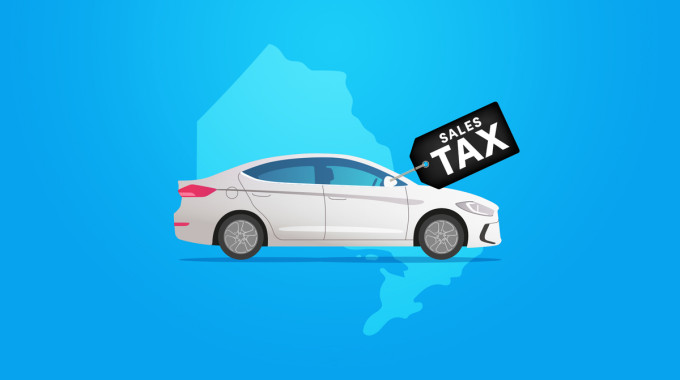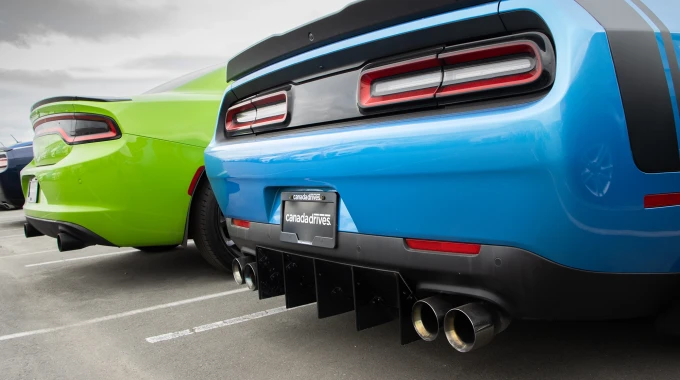
Car Insurance in British Columbia: Everything You Need to Know
British Columbia’s public auto insurance system has been in the news many times over the last few years, thanks to B.C.’s reputation for being the most expensive place in Canada to insure a car or truck.
The province’s Autoplan insurance regime is administered by the Insurance Corporation of British Columbia (ICBC), a provincial Crown corporation created in 1973 to sell insurance policies through its own network of brokers. Every driver in B.C. must purchase a Basic Autoplan insurance package, which includes mandatory coverage for third-party liability, accident benefits, vehicle damage, underinsured motorist protection, and inverse liability protection.
Optional coverage and insurance add-ons are also available, which you can buy from ICBC or from a private insurance provider, a process we’ll discuss later on in this article.
In 2025, ICBC also announced a $110 rebate for most policyholders with active coverage in January 2025, reinforcing its promise to keep basic coverage affordable for B.C. drivers.
For now, read on to learn all you need to know about insuring a vehicle in British Columbia.
How much is car insurance for new drivers in B.C.?
In September 2019, Global News interviewed a 20-year-old student named Emily Nelson who paid $5,000 for a used car and then got a bill for nearly $6,000 for her first year of coverage through ICBC.
A month later, the Vancouver Province wrote about 18-year-old Izabella Bryant, who bought a used car for just over $10,000 and then discovered her insurance would cost $5,300. Those annual premiums added up to monthly costs of $400 to $500.
While those are extreme examples, RateLab.ca’s latest data puts the average annual premium for a first-time car buyer at $3,194—or nearly $270 per month—which remains among the highest in Canada.
Like other provinces and territories, ICBC insurance premiums decrease as drivers gain experience and maintain a clean driving record. Safe driving habits and avoiding at-fault claims can help new drivers qualify for discounts and save money over time.
How much is car insurance in B.C. for more experienced drivers?
According to a 2020 study by MNP, the average annual auto insurance premium in B.C. was $1,832. By 2021, that figure rose closer to $1,900. By 2025, most drivers still pay around $150–$160 per month for basic level coverage, depending on driving history and vehicle type.
While ICBC was originally a non-profit entity, in 2010 the provincial government began annual transfer payments from ICBC’s reserves. A 2018 report by the Fraser Institute blamed this shift, in part, for rising costs.
ICBC still has a monopoly on mandatory insurance, but B.C.'s insurance market allows customers to shop for additional protection from private companies. Despite ongoing discussions around competition and efficiency, most drivers remain with ICBC for basic Autoplan needs.
ICBC also offers usage-based savings: Drivers traveling fewer than 10,000 km annually may qualify for discounts between 5%–15%, rewarding low-mileage drivers with lower premiums.
Private car insurance in B.C.
Once your vehicle is registered and your basic insurance is secured through ICBC, you may choose to enhance your policy with optional coverage from a private insurance company.
Coverage types to consider include:
- Collision coverage: Pays for repairs if you’re at fault in a crash.
- Comprehensive coverage: Covers incidents like theft, vandalism, or falling objects.
- Specified perils: A more limited version of comprehensive at a lower cost.
- Extended third-party liability and underinsured motorist protection.
- Loss of use and rental vehicle coverage.
- New vehicle protection or GAP insurance: Available from private insurance providers, GAP insurance covers the difference between your car’s value and the balance on your loan if your vehicle is totaled—a valuable form of financial protection for financed vehicles. (Learn more below.)
You can get quotes directly or through an insurance broker who works with multiple providers. This helps compare prices and insurance products more efficiently. Just make sure you're working with a licensed agent listed in the Insurance Council’s licensee directory.
GAP Insurance in B.C.
GAP insurance, or Guaranteed Asset Protection, is a type of additional protection that helps you cover the difference between what you owe on your vehicle and its market value if it's written off due to a total loss.
This coverage is especially relevant for financed or leased vehicles, where a sudden loss early in the loan term can leave drivers owing thousands out of pocket. While ICBC insurance offers replacement vehicle coverage under its New Vehicle Replacement Plus (NVR+) plan for up to 3 years, this is not a full GAP policy and does not extend beyond that window.
If you're looking for extended GAP coverage (up to 5–7 years), you'll need to explore optional coverage from private insurance companies. Many lenders also offer GAP coverage at the time of vehicle financing.
GAP insurance is not mandatory in B.C., but for new vehicle owners—especially those with long-term financing—it can provide critical financial protection in the event of a major claim.
ICBC Commercial & Business Insurance
If your vehicle is used for work, ICBC offers business and commercial insurance policies that go beyond standard personal coverage. These policies are tailored to ensure financial protection for vehicles operating as part of a business, from small contractors to large delivery fleets.
Types of commercial and business insurance available through ICBC include:
- Fleetplan: Designed for businesses that operate 20 or more vehicles, ICBC’s Fleetplan consolidates policies under one account, simplifying management and often reducing costs. It includes flexible payment options and the ability to track all your vehicles in one place.
- Non-Fleet Commercial Vehicles: If your business has fewer than 20 vehicles—like a single delivery van or a few service trucks—ICBC’s non-fleet policies provide optional coverage tailored to business use, including collision, comprehensive, and liability protection.
- Garage Vehicle Policy: This is ideal for repair shops, dealerships, and towing companies that move customer vehicles. It includes property damage and liability protection during customer vehicle handling.
- Temporary Operation Permits: If your business only needs occasional use of a commercial vehicle, ICBC offers short-term permits with limited coverage.
- Ride-Hailing & Car Sharing: If you operate your vehicle with companies like Uber or Turo, ICBC has specific add-ons that meet legal requirements and offer additional protection for both you and your passengers.
ICBC commercial policies are often customizable based on vehicle type, cargo, routes driven, and the nature of your business. You can purchase them through authorized brokers, many of whom will also help you compare insurance products offered by private insurance providers for add-ons not included in ICBC’s coverage.
How do you renew B.C. insurance online?
Renewing your ICBC Autoplan online is easy through the corporation’s renewals portal. You’ll need a BC Services Card or Verified.Me account to log in.
Renewals are available for personal policies within 44 days of their expiration and do not include policy changes. Miss your renewal date, and you’ll be left without coverage.
Remember, if you have optional coverage with a private insurance company, you’ll need to renew that separately—or let your insurance broker handle both at once.
Other common B.C. car insurance questions answered:
Can I insure a car without a license in B.C.?
Yes, ICBC allows drivers to purchase insurance even without a licence, such as in cases where someone else will be doing the driving.
Is there GST and PST on car insurance in B.C.?
Yes, expect to pay 12% in sales taxes (7% PST + 5% GST) on all insurance products, including basic and optional coverage.
How much is collector car insurance in B.C.?
The cost of collector vehicle insurance in B.C. depends on a variety of factors, including the driver and the vehicle itself, but according to this article, insuring a collector car can cost as little as $300 per year. Part of the reason it’s relatively inexpensive is that a collector vehicle can only be driven for pleasure, not to get to and from work or school.
Generally, a vehicle must be at least 25 years old to qualify for the ICBC’s Collector Motor Vehicle Program. However, a car or truck between 15 and 25 years old may be eligible if fewer than 1,500 examples of it were produced worldwide during the same model year, or if the vehicle’s make has been defunct for at least five years.
Whichever age-related requirement your vehicle meets, it must also be in “exceedingly” good condition that “conforms to the original manufacturer’s specifications.”
How much is temporary / one-day car insurance in B.C.?
If you need to insure a vehicle for a short period—such as moving an unlicensed vehicle, taking a test drive, or transporting a newly purchased car—you can obtain a Temporary Operation Permit (TOP) from ICBC. These permits provide basic coverage and are valid for 1 to 15 days, offering flexibility for various short-term needs.
TOPs are particularly useful in situations like:
- Test-driving a vehicle that's not currently insured.
- Relocating an uninsured vehicle.
- Moving a vehicle during emergencies, such as evacuations due to wildfires or floods.
To obtain a TOP, visit any Autoplan broker in person. Please note that TOPs cannot be purchased online. For more information, refer to ICBC's guidelines on buying or renewing insurance.
Final Thoughts
With the introduction of new rebates, better digital services, and broader optional protection, ICBC insurance in 2025 remains central to keeping B.C. drivers safe and financially secure. Whether you're insuring a personal or commercial vehicle, understanding your coverage options—including GAP, business, and add-on policies—can help you make the best choice in a growing insurance market.







